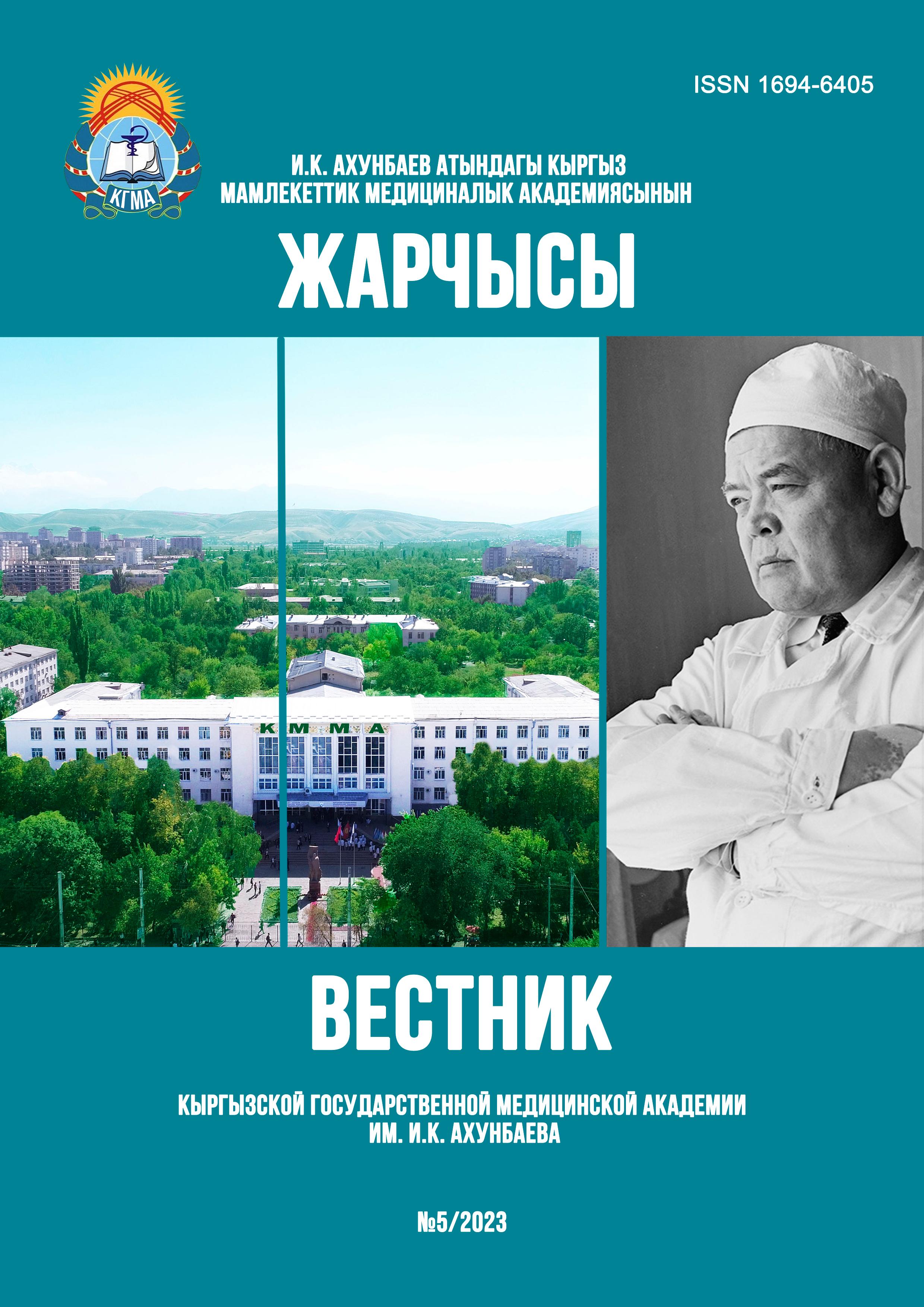ISSUES OF ORGANIZATION OF FEEDING OF NEWBORNS WITH ANOMALIES OF CNS DEVELOPMENT
DOI:
https://doi.org/10.54890/1694-6405_2023_5_147Abstract
Target: to study the possibilities of organizing the feeding of newborns with anomalies in the development of the central nervous system before and after the operation.
Materials and methods. The work is based on a retrospective analysis of 25 case histories of full-term patients with congenital hydrocephalus who underwent surgery in the period from 2016 to 2020.
Results. The duration of the preoperative period in 22 (88%) patients ranged from 6 to 15 days (±2.5–13.3). All children were on enteral nutrition throughout the entire time, 14 (56%) combined with parenteral nutrition, 21 (84%) children received breast milk, of which 90.4% needed additional feeding with an adapted mixture. The basis of parenteral nutrition was the use of carbohydrates in 48% of children, in combination with protein in 5 (20%) children. Bulbar disorders were attributed to the main reasons for the decrease in the volume of enteral nutrition. To assess the sufficient supply of energy, the corresponding calculation of the daily caloric intake was carried out. It was taken into account that the calculated kilocalories could be provided both with enteral and parenteral feeding. Brain damage is a fairly specific process. Which require the need for an individual approach to solving issues related to the organization of the feeding process. It was found that a significant part of children (64%) had access to 100% of the calculated calorie intake on the day preceding the operation, which corresponds to the standard indicators. However, 28% of children were provided with 55 to 75% of the calculated kilo-calories, and 12% of children only 50% or less.
Conclusions. Enteral nutrition using breast milk for children with congenital malformations of the ventricular system of the central nervous system at the pre- and post-operative stage improves the survival of children. The use of enteral nutrition in the required volumes provides the child with energy and protein.
Keywords:
pathology of the central nervous system, feeding, neural tube malformations.References
1. Ерпулева Ю.В., Лекманов А.У. Современные проблемы нутритивной поддержки у детей в ОРИТ: Зачем? Когда? Сколько? Российский вестник детской хирургии, анестезиологии и реаниматологии. 2011;3:85-91.
2. Лекманов А.У., Ерпулева Ю.В. Раннее энтеральное питание при критических состояниях. Вестник интенсивной терапии. 2012;3:53-55.
3. Лекманов А.У., Ерпулева Ю.В. Использование иммунного питания у пациентов в критических состояниях. Вестник интенсивной терапии. 2010;3:68-71.
4. Мебелова И.И. Современные подходы к энтеральному питанию недоношенных детей с экстремально низкой и очень низкой массой тела при рождении. Неонатология: новости, мнения, обучение. 2016;3:72-80.
5. Agostoni C, Buonocore G, Carnielli VP, De Curtis M, Darmaun D, Decsi T et al. Enteral nutrient supply for preterm infants: commentary from the Europe Society of Pediatric Gastroenterology, Hepatology and Nutrition Commitee on Nutrition. J. Pediatr. Gastroenterol. Nutr. 2010;50(1):85–91. https://doi.org/10.1097/MPG.0b013e 3181adaee0







